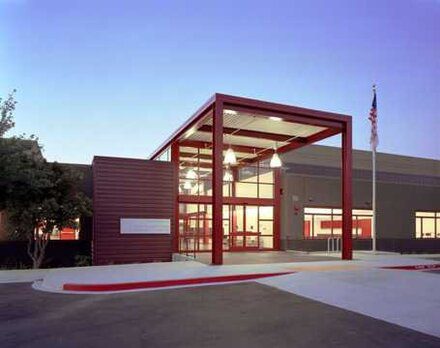 Pickleweed Park & Albert J. Boro Community Center in the Canal district of San Rafael.
Pickleweed Park & Albert J. Boro Community Center in the Canal district of San Rafael.
Other key metrics, including the number of coronavirus tests conducted over the last seven days, the number of residents testing positive and the percentage of hospital beds occupied COVID-19 patients are all heading in the right direction.
But while those metrics provide some solace for a slow, steady march toward normalcy over the next many months, the Canal district of San Rafael, home to many of the essential workers who serve as the economic backbone of our community in Mill Valley, continues to be decimated by the pandemic and requires our immediate attention. In recent months, Mill Valley restaurants have had workers test positive for coronavirus and return home to the multi-family apartment buildings in which they live, further spreading the virus.
“You know, high-risk, high-poverty essential workers facing multiple challenges that other groups are not,” Omar Carrera, who runs the Canal Alliance, the San Rafael non-profit that has supported Latinx immigrant communities here for nearly 30 years, recently told NPR. While Latinos make up about 16 percent of Marin’s population, they account for nearly 80% of COVID-19 cases in the county, according to Marin County Public Health.
“Latinos have been the essential workers for this county before COVID-19, during COVID-19, and probably after,” Carrera told NPR. “So poverty, inequities, the jobs that they perform, the (packed) housing conditions – all of that creates the perfect environment for the virus to spread quickly.”
Dr. Matt Willis, Marin County’s health director, says that about 3% of the county’s coronavirus tests come back positive, but that rate is 20% in the Canal and has been as high as 40%. “The roots of this outbreak go so far beyond our health care interventions and are really rooted in how we’ve organized our economy,” Willis told NPR. “People who live in the Canal are three times more likely to live in poverty than the rest of Marin County, and are 15 times more likely to share a room with two or more other people.”
Those disparities can no longer be ignored, Carrera says.
“We have a county that is one of the wealthiest counties in the country, and yet you have these inequities that existed for a long time. And that is the lack of policies. We need resources, yes, but also policies to support people that need it the most.”
Topping Carrera’s post-pandemic wish list: new debates and policies on housing, health, transportation, and education equity. The virus, he says, shows that when you leave any community neglected, “we all suffer.”
One small step county officials have taken this month is to create free COVID-19 testing centers for restaurant workers. One such site is located in Marin City and is open every Thursday, 1-3pm. MORE INFO.
